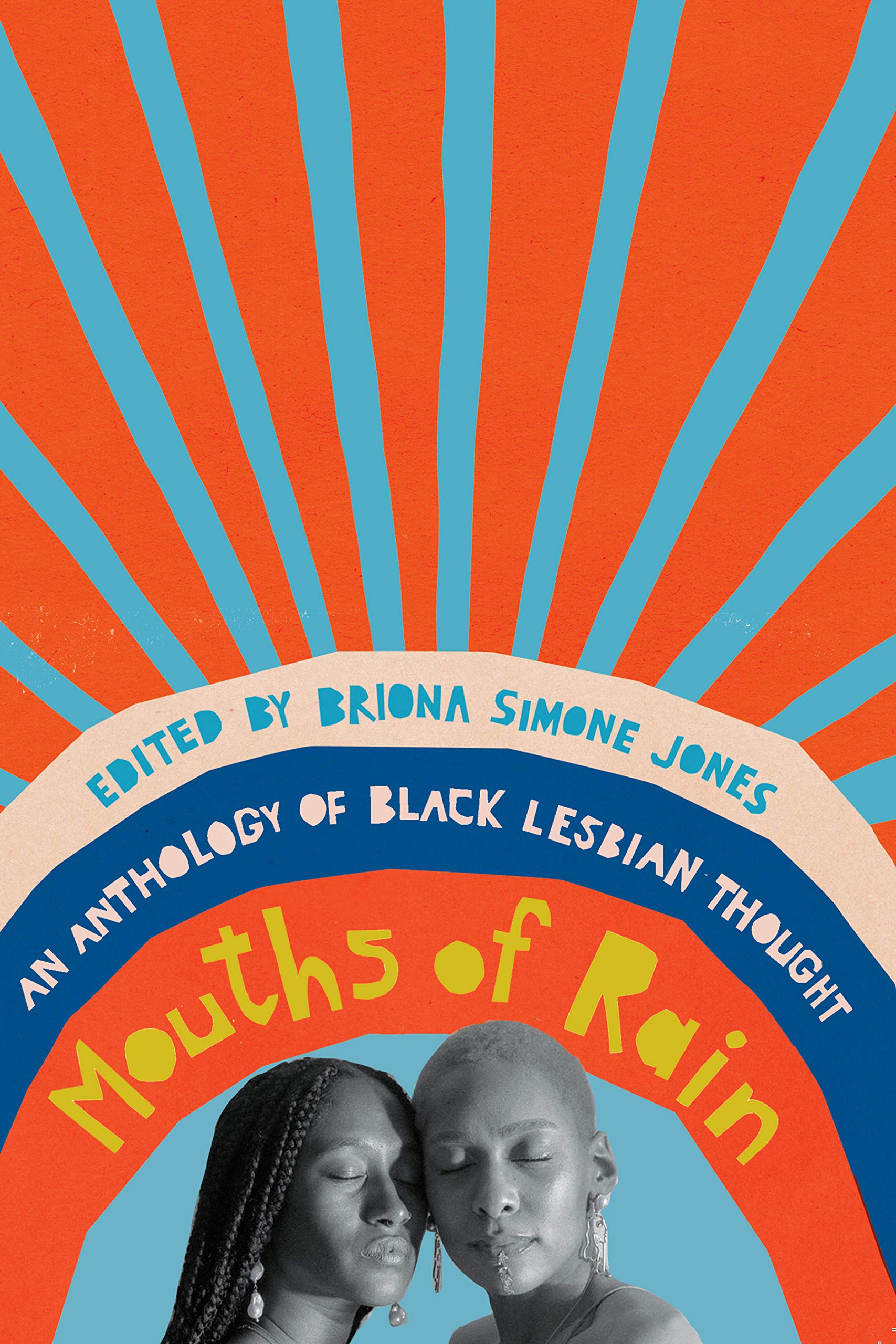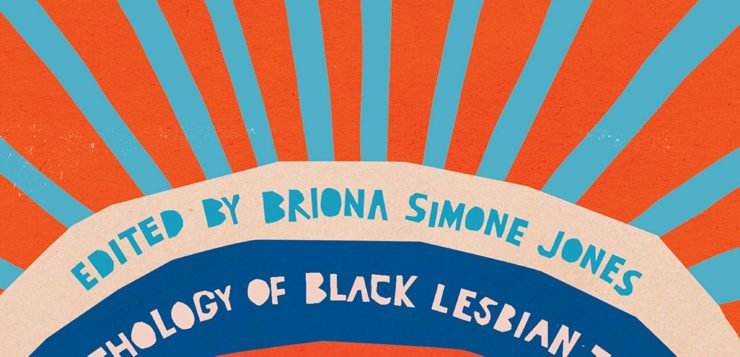 MOUTHS OF RAIN
MOUTHS OF RAIN
An Anthology of Black Lesbian Thought
Edited by Briona Simone Jones
The New Press. 224 pages, $22.99
THIS LARGE ANTHOLOGY has three very different introductory pieces: a foreword by Cheryl Clarke; an essay titled “Mouths of Rain: Be Opened,” by Alexis Pauline Gumbs; and an introduction by the editor, Briona Simone Jones. Cheryl Clarke assesses the importance of this book in the context of writing by and about people of African descent, especially women and members of LGBT communities.
Alexis Pauline Gumbs explains the significance of the phrase “mouths of rain,” which comes from lesbian poet Audre Lorde, who was born in the Caribbean: “In Anguilla [a Caribbean island]they say my grandmother knew how to control the rain. … Like water nourishing the ground, she made the impossible bloom. And in the years after my grandmother’s death, Anguilla has become so lush and green, you would almost never know it had ever been a desert island.” As Gumbs explains it, her grandmother was characteristic of Black women who nourish their communities and leave the world a better place than they found it.
In her introduction, Briona Simone Jones says: “I aspire to trace the long history of love between Black women because I have come to recognize that our love stories have been buried underneath our activism.” To pay tribute to all aspects of Black lesbian culture, Jones has organized the book in five sections covering major topics in lesbian identity, sexuality, and activism. The list of contributors is a who’s who of Black American women writers, with a generous minority of writers from other countries.
The first section is named for “Uses of the Erotic: The Erotic as Power,” an influential essay by Audre Lorde, which is included in its entirety. Lorde refers to “the erotic” as “a resource within each of us that lies in a deeply female and spiritual plane, firmly rooted in the power of our unexpressed or unrecognized feeling.” This section includes song lyrics, poems, and short stories.
Part II deals with “intersectionality,” a term coined by Black American academic Dr. Kimberlé Crenshaw to define overlapping identities of oppression. As the writer and activist Barbara Smith says: “We [Black lesbian feminists] were marginalized in the Black movement, in the Black liberation movement, certainly in the Black nationalist movement. And we were marginalized in the white feminist movement, for different reasons.” This section includes a moving fictionalization of the case of “The New Jersey Four,” when four women were convicted of “gang assault” on a man who had threatened to rape them in the West Village in 2007.
The third section focuses on the experience of “coming out,” recognizing and expressing one’s own erotic and gender identity. Pat Parker’s story “funny” movingly describes a first lesbian relationship between schoolgirls in a rigidly conservative community. This account ends on a hopeful note: “We didn’t know the name for what we were and what we were doing, but we did know it had to be a secret. … But faith, or time, or the goddess placed us in an era where closet doors would at first creak, then slide, then blast open.”
The section on “The Sacred” deals with non-Christian spirituality, specifically the Yoruba spiritual tradition, which was carried to the Western Hemisphere on slave ships and took various forms and names: voodoo, Santeria, “roots.” This section includes “Fighting Racism: An Approach through Ritual” by SDiane Bogus, which outlines ways in which women from different communities can tap into their deepest feelings in order to bond for the purpose of social change.
Mouths of Rain ends with a section on “futurities,” forward-looking strategies for the empowerment of Black women-loving women. This section, which is the most scholarly, includes the widely-published essay “Toward a Black Feminist Criticism,” by Barbara Smith. In “A Ratchet Lens: Black Queer Youth, Agency, Hip Hop, and the Black Ratchet Imagination,” Bettina Love deconstructs the term “ratchet” as a modifier meaning “loud, hot-tempered, and promiscuous,” and relates it to contemporary Black culture. In “Play Aunties and Dyke Bitches: Gender, Generation, and the Ethics of Black Queer Kinship,” Savannah Shange starts with a description of a fight between teenage girls, a violent expression of tensions within their urban youth culture.
This wide-ranging book is both historical and contemporary. It seems guaranteed to be read for a long time to come.
____________________________________________________
Jean Roberta is a widely published writer based in Regina, Sask.






